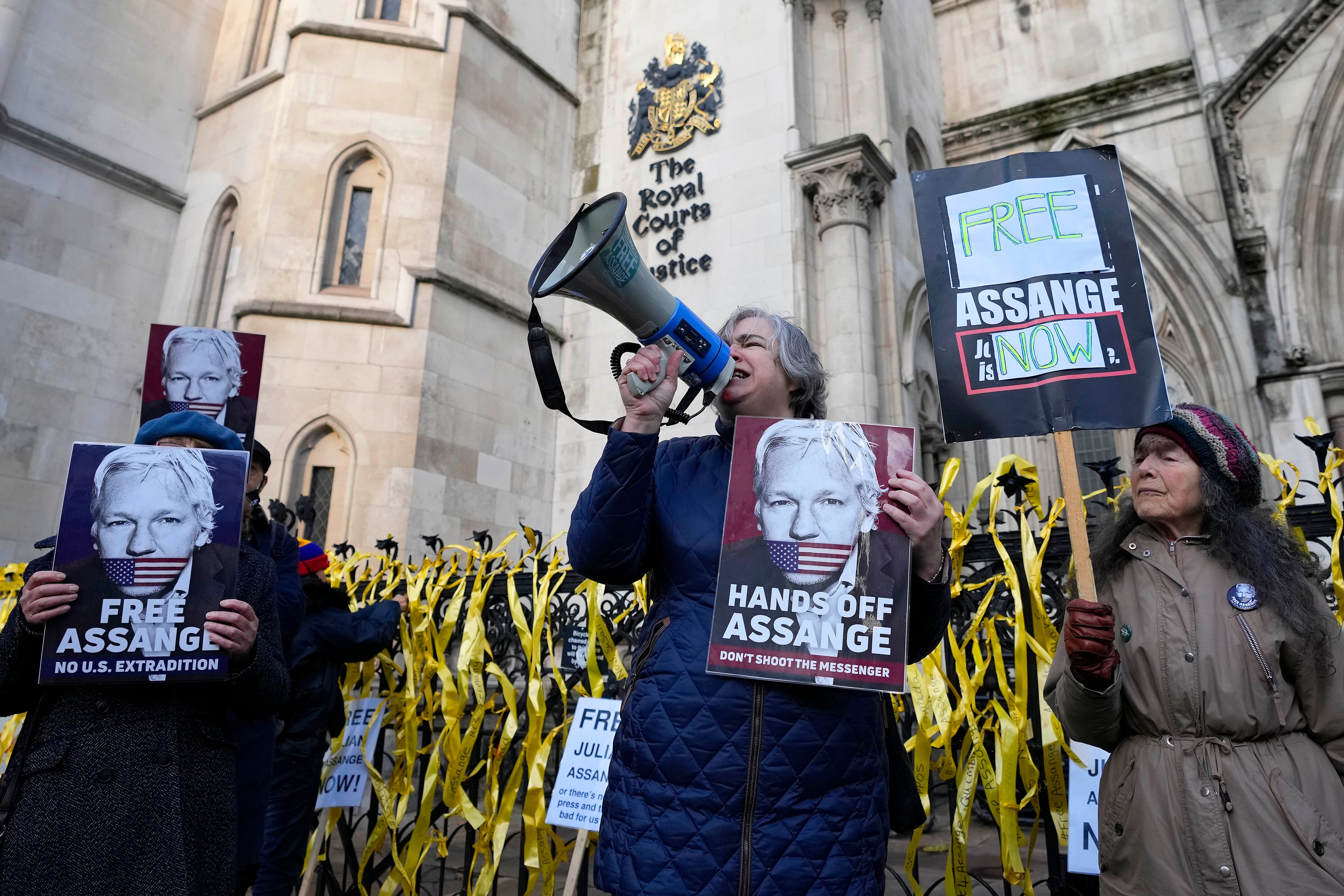UK court rules on request to send Assange to US for trial
A British appellate court has opened the door for WikiLeaks founder Julian Assange to be extradited to the United States

Your support helps us to tell the story
From reproductive rights to climate change to Big Tech, The Independent is on the ground when the story is developing. Whether it's investigating the financials of Elon Musk's pro-Trump PAC or producing our latest documentary, 'The A Word', which shines a light on the American women fighting for reproductive rights, we know how important it is to parse out the facts from the messaging.
At such a critical moment in US history, we need reporters on the ground. Your donation allows us to keep sending journalists to speak to both sides of the story.
The Independent is trusted by Americans across the entire political spectrum. And unlike many other quality news outlets, we choose not to lock Americans out of our reporting and analysis with paywalls. We believe quality journalism should be available to everyone, paid for by those who can afford it.
Your support makes all the difference.A British appellate court has opened the door for Julian Assange to be extradited to the United States by overturning a lower court ruling that found the WikiLeaks founder's mental health was too fragile to withstand the American criminal justice system.
A lower court judge earlier this year refused an American request to extradite Assange to the U.S. to face spying charges over WikiLeaks’ publication of secret military documents a decade ago. District Judge Vanessa Baraitser denied extradition on health grounds, saying Assange was likely to kill himself if held under harsh U.S. prison conditions.
The appellate court ruling handed down Friday is likely to be appealed.
THIS IS A BREAKING NEWS UPDATE. AP’s earlier story follows below.
LONDON (AP) — Britain’s High Court is set to rule Friday on whether to overturn an earlier decision and allow WikiLeaks founder Julian Assange to be sent to the United States to face espionage charges.
A lower court judge earlier this year refused an American request to extradite Assange to the U.S. to face spying charges over WikiLeaks’ publication of secret military documents a decade ago. District Judge Vanessa Baraitser denied extradition on health grounds, saying Assange was likely to kill himself if held under harsh U.S. prison conditions.
Appealing against that decision at the High Court in London an attorney for the U.S. government denied that Assange’s mental health was too fragile to withstand the U.S. judicial system. Lawyer James Lewis said Assange “has no history of serious and enduring mental illness” and does not meet the threshold of being so ill that he cannot resist harming himself.
U.S. authorities have also told British judges that if they agree to extradite Assange, he could serve any U.S. prison sentence he receives in his native Australia
U.S. prosecutors have indicted Assange on 17 espionage charges and one charge of computer misuse over WikiLeaks’ publication of thousands of leaked military and diplomatic documents. The charges carry a maximum sentence of 175 years in prison, although Lewis said “the longest sentence ever imposed for this offense is 63 months.”
Assange, 50, is currently being held at London’s high-security Belmarsh Prison.
Whichever side loses Friday's decision is likely to appeal.